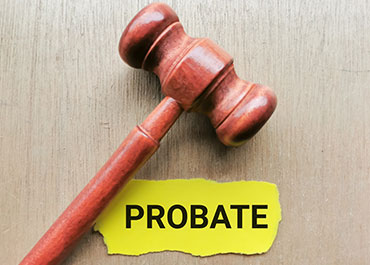Get Your Questions Answered – Call Me To Schedule Your 30 Minute Phone Consultation
(719) 985-8192

Delays in the probate process can be frustrating and costly. Understanding the potential sources of these delays and how to avoid them can help facilitate a smoother experience for you and your loved ones.
One major factor in this is the type of probate. Formal probate requires court approval for almost every decision, which can significantly slow down the process. To avoid this, opt for informal probate whenever possible, unless the situation specifically warrants additional scrutiny from the court.
Another common cause of delay is the personal representative’s lack of awareness or action regarding their duties. Personal representatives must understand their responsibilities from the outset of a probate case.
Delays often occur when the personal representative waits until the case is nearly closed to start tasks like creating an inventory or accounting for the estate. Being familiar with the process, showing itself by starting relevant tasks early and maintaining them throughout the probate process, is key to reducing the time it takes to close a case.
Common causes of disputes among heirs can be grouped into two categories: those that arise when there is a will and those that arise when there isn’t.
When there is a will, disputes often occur because a family member might claim that despite what the will says, the deceased had expressed different wishes to them personally.
Unless they can prove irregularities in the creation of the will, these claims are usually not recognized. However, disputes can arise if there is evidence suggesting that the deceased was not competent when the will was made or that they were unduly influenced by someone.
When there isn’t a will, disputes often center around deciding who will be the personal representative and how the property will be divided. One heir might want to keep a family home, while another might need the money and want to sell the property. These conflicts clearly demonstrate the importance of having a will in place to clearly outline the decedent’s wishes and prevent misunderstandings.
The first step in navigating unclear or ambiguous wills is to see if all the heirs can agree on an interpretation. If consensus cannot be reached, the next step is to ask the court to interpret the will.
This can often be done in an informal probate setting without making the entire process formal. In such cases, you’re essentially requesting the court to step in specifically to interpret the unclear portions of the will and provide guidance on how it should be executed.
A personal representative, also known as an executor, is a fiduciary with a duty to act in the best interest of carrying out the wishes of the decedent.
If anyone involved in the case suspects that the executor is not fulfilling these duties—such as diverting funds for personal use or improperly selling property—you can file a motion with the court for a review of the executor’s actions.
If the court finds that the executor has been acting improperly, they can be required to reimburse the estate for any costs or return any property that was handled inappropriately. If the court determines that the executor is acting within their power, it provides assurance to the heirs that the executor is fulfilling their responsibilities as they should.
Creditors’ claims are an important aspect of every probate process. In Colorado, these claims are typically cut off either one year after the decedent’s death or four months after the publication of notice to creditors. Our practice is to publish this notice as soon as possible to shorten the time frame for notice of claims.
Once a creditor files a notice of claim, it is the personal representative’s responsibility to review and validate the claim. If the claim is valid, it should be paid to the extent that funds are available. If the personal representative determines the claim is invalid, they can deny it, and the creditor must then decide whether to file an action in court to enforce their claim.
It is worth noting that this process pertains to unsecured claims. Secured claims, such as those backed by a mortgage or a UCC lien, are addressed differently. The secured property either needs to be paid off from the proceeds of the security or from other estate assets if the estate wishes to retain the property.
Still Have Questions? Ready To Get Started?
For more information on Common Probate Issues And How To Avoid Them, an initial consultation is your next best step. Get the information and legal answers you are seeking by calling (719) 985-8192 today.